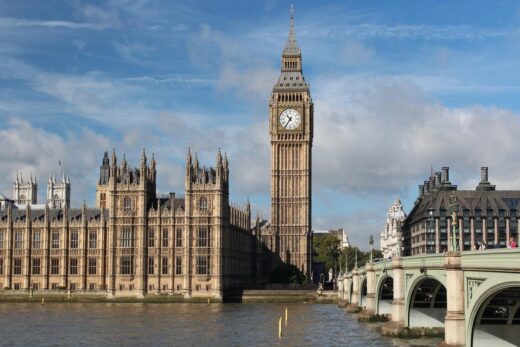UK sustainable property gain from energy prices crisis, British Construction Industry, Eco Housebuilding 2022
UK sustainable property gain due to energy prices crisis
17 May 2022
Energy crisis sparks homebuyers’ appetite for sustainable properties
A new independent survey among over 1,348 UK homeowners has uncovered their shifting attitudes towards sustainable properties.
- 44% of UK homeowners said they would pay more for a property with a high energy efficiency rating
- This rises to 59% among 18-34-year-olds
- 39% say remote working patterns have increased the importance of a property’s sustainability credentials
- 42% believe improving the energy efficiency of their property will future-proof its value
- 64% believe that the government should do more to increase the affordability of sustainable properties
UK sustainable property research – world energy prices crisis
New research from FJP Investment has revealed that 30% of homeowners have started to prioritise sustainability within their property ownership and investment plans due to the energy prices crisis.
The investment firm commissioned an independent survey of 1,348 UK homeowners. It found that 44% would be willing to pay more for a property with a high energy efficiency rating, with the figure jumping to 59% among those aged 18-34.
The research showed the normalisation of remote work is weighing in on home-hunters’ sustainability considerations, with 39% more concerned with the energy efficiency of their property in light of this growing trend.
FJP’s study revealed that over two-fifths (42%) of homeowners believe that improving the energy efficiency of their property will future-proof its value. Indeed, recent data based on average property prices in England showed that raising a property’s EPC from a G through to a higher A rating could increase the value of a property by as much as 14%.
Just under a quarter (22%) of homeowners are prepared to purchase a property with poor energy efficiency and then make improvements themselves, highlighting a preference to purchase properties already holding a good rating, however, cost remains a barrier to green homeownership. The research showed the majority (64%) of homeowners believe that the government should do more to increase the affordability of sustainable properties.
Jamie Johnson, CEO of FJP Investment, said: “The energy prices hike will see homeowners across the UK facing much higher energy bills compared to previous years, and our research shows that more people are starting to take green credentials more seriously when it comes to their next home or property investment. Greater energy-efficiency will continue to increase as a key factor in preferences as homeowners seek to reduce energy bills and live more sustainably.
“Now, more than ever before, developers, construction firms and designers must prioritise sustainability in future projects to meet the demands voiced by homeowners, with most seeking a property already equipped with energy-efficient features rather than one that needs retrofitting further down the line.
“While the tax relief announced in the Spring Statement on solar panels, insulation and heat pumps is a step in the right direction, the measures don’t go far enough to solve the affordability issue facing many households who will find these energy incentives largely out of reach. Driving sustainability in new homes and removing the affordability barriers to green renovations and sustainable home ownership needs to be at the forefront of the government’s agenda, who must work hand in hand with the construction industry to ensure greater progress is made”.
UK homeowner sustainable property research
About the research
The market research was carried out between 8th and 13th April 2022 among 2,000 UK adults via an online survey by independent market research agency Opinium. Opinium is a member of the Market Research Society (MRS) Company Partner Service, whose code of conduct and quality commitment it strictly adheres to.
Its MRS membership means that it adheres to strict guidelines regarding all phases of research, including research design and data collection; communicating with respondents; conducting fieldwork; analysis and reporting; data storage. The data sample of 2,000 UK adults is fully nationally representative. This means the sample is weighted to ONS criteria so that the gender, age, social grade, region and city of the respondents corresponds to the UK population as a whole. These questions focus on a collection of 1,348 homeowners.
UK sustainable property gain from energy prices crisis information received 170522
Previously on e-architect:
British Construction Industry
Current British Construction Industry Issues
UK Government Queen’s Speech 2022 Response

Responses to the Levelling-up and Regeneration Bill:
UK Government Queen’s Speech 2022 Response
British energy security strategy

British energy security strategy
Sustainable Building News

photo © Richard Glover / Matt Estherby
Sustainable Building News
UK construction activity to grow
Construction Industry recovery from COVID-19
How COVID-19 changes urban design
Average energy bills in the UK guide
Comments / photos for the UK sustainable property gain from energy prices crisis news page welcome






